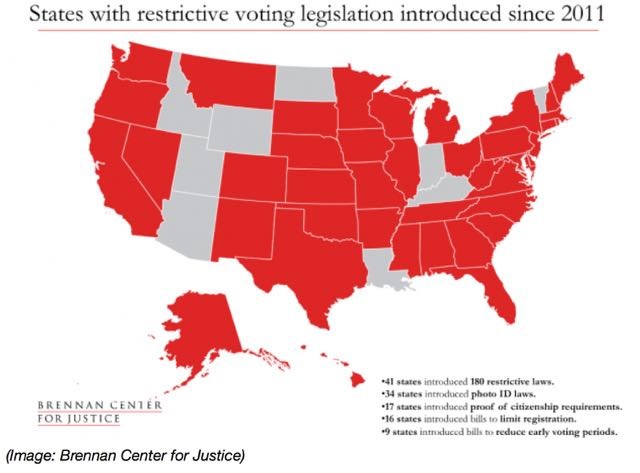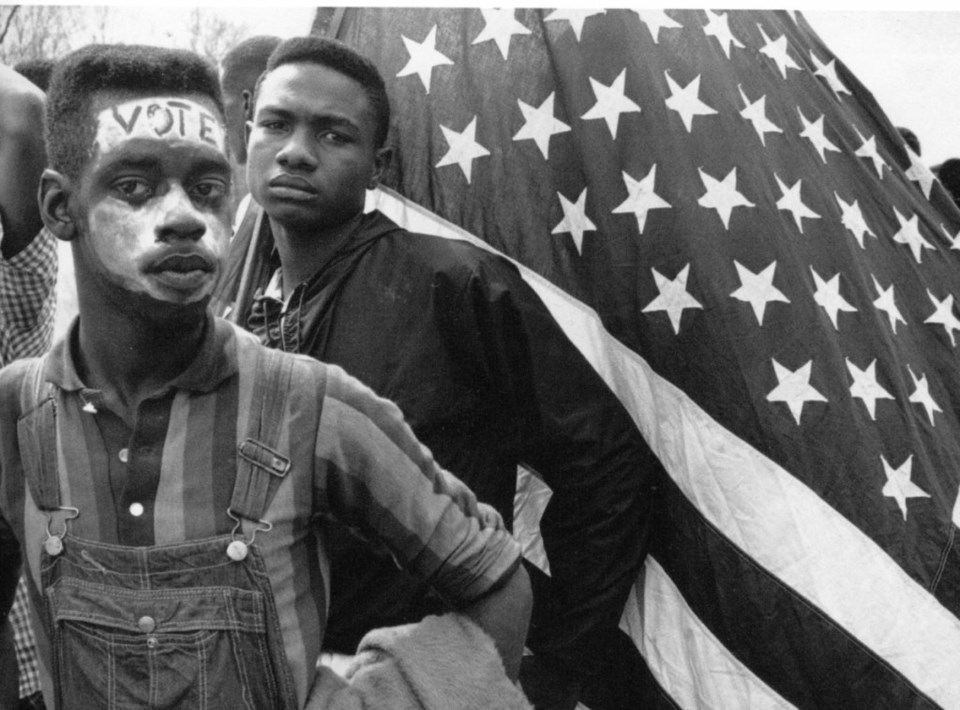On March 7, 1965, Civil Rights Leader Martin Luther King, Jr. joined arm-in-arm with other clergy and community leaders nationwide for a march that would change the course of civil rights in America.
In a show of solidarity for racial justice and an outward call for voting rights for all citizens, these notable figures, along with hundreds of everyday citizens began marching unarmed from Selma, Alabama, toward the state capitol in Montgomery when they were attacked at the Edmund Pettus Bridge by state troopers armed with guns, billy clubs and tear gas. Hundreds were injured. The event was known as "Bloody Sunday."
The nation watched from their television screens as these non-violent protestors were violently attacked, highlighting for the country-- and the rest of the world-- America's blatant mistreatment of its black citizens. Not long afterward, U.S. President Lyndon B. Johnson gave a speech urging Congress to pass legislation that eliminated restrictions against its black citizens and their right to vote, calling it "the most powerful instrument ever devised by man for breaking down injustice." The Voting Rights Act was approved with bipartisan support on Aug. 6, 1965.
Finally, Dr. Martin Luther King, Jr.'s dream had been realized! The Voting Rights Act of 1965 was hailed as "the most successful civil rights statute" in the nation's history and the "crown jewel" of the civil rights movement.
However, as we head into the next presidential elections of 2024, almost 60 years after the passage of the Voting Rights Act, King's dream has become his greatest nightmare:
What happened? Let's rewind back to the 2010 elections in America, when the ultra-conservative Tea Party gained control in 30 state legislatures. Shortly after, the U.S. Supreme Court gutted a key provision in the Voting Rights Act of 1965, ushering in loopholes that allowed State lawmakers to pass voter suppression laws that made it harder to vote.
From 2011 to 2015, 395 new voting laws have been introduced in forty-nine states (Idaho is the lone exception), making it harder to vote, particularly for African-American voters in rural areas, according to the Brennan Center for Justice. These new provisions include shutting down voter registration drives, requiring state IDs, cutting early voting, ending same-day registration, required proof of citizenship for voter registration, disenfranchising ex-felons-- basically curtailing virtually every reform that made it easier to vote.

Congress would go on to pass a resolution awarding the Congressional Gold Medal to the Selma marchers, yet roll back the advancements those same marchers fought for.
Today, as we honor the legacy of Dr. Martin Luther King, Jr. on his birthday, we should ask ourselves: What we can do in continuing the fight for voter's rights?
How can we push back against a system of racial discrimination in America, a system that-- 50 years after the passage of the Civil Rights Act-- continues to rear its shameful and ugly head? Here are a few things you can do:
1) Start a petition at your community board meeting where every participant gets 100 signatures from local residents urging their Congressional Representative: 1. pass electoral reform 2. ratify a constitutional amendment guaranteeing the right to vote; and 3. revise and restore Section 4 of the Voting Rights Act!
2) Support organizations, such as Dream Defenders, that aims to develop and maintain power at the ballot box. Donate to help fund organizing to support their "Bloc Is Ours" voter engagement program here.
3) And finally, if you are not amongst those populations (primarily people of color) most affected by systems that legalize injustice, recognize that the best way to be a good ally is to go work among your own people to spread the word, organize, create more allies and build a social movement that works to shame the very systems that shame America.




